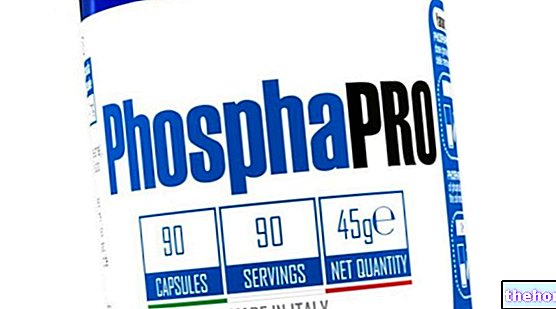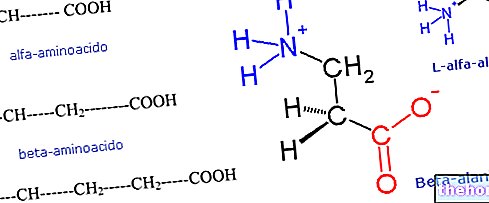Generality
Melatonin is the main hormone secreted by the pineal gland, otherwise called the epiphysis.
Its production occurs at the level of cells called pinealocytes, starting from the amino acid tryptophan, while its secretion follows a characteristic circadian rhythm.

After birth, melatonin levels rise with increasing age, to decrease again in adulthood and geriatric age; hence the use of melatonin as a possible anti-aging remedy.
Melatonin is involved in the regulation of numerous biological cycles, thus synchronizing the photoperiod to the organic response.
Reproductive functions, body weight, social and neurological characteristics are just some of the factors regulated by melatonin.
Indications
Why is melatonin used? What is it for?
Classically, by virtue of its hypnotic activity, melatonin is used in the management of sleep disorders, insomnia and jet lag.
However, in the light of new studies that would attribute immunomodulating and antioxidant activities to melatonin, this molecule would also seem useful in the management of some complex pathologies, such as cardiovascular, neurological and oncological ones.
Even more recent, and not fully characterized, is the application of melatonin in the anti-aging field.
The aforesaid effects, especially the most studied ones, such as hypnotic ones, would derive from the molecular action of this hormone, able to interact with specific receptors expressed at the level of the central nervous system, and to control the activity of numerous cells.
Melatonin would act as a biological clock, synchronizing various cortical areas, in order to properly integrate all the various functions.
Properties and Effectiveness
What benefits has melatonin shown during the studies?
There are many and constantly growing studies on the biological potential of melatonin and melatonin supplements.
The very high number of studies, however, is affected by an important variability of the results, which makes it rather difficult to identify certain and accredited biological functions.
Melatonin and sleep disorders
Most of the studies seem to agree that melatonin is a valid ally in the fight against insomnia and sleep disorders.
In fact, it has been widely demonstrated that subjects with physiological concentrations of melatonin also have a correct sleep-wake rhythm.
Rhythm that would be strongly affected by the alterations of the normal circadianity of melatonin.
Melatonin and jat-lag
According to some authors, the use of melatonin would also be valuable in controlling some typical symptoms of jat-lag, such as disorientation, nausea, loss of appetite and sleep disturbances.
Also in this case, the activity of melatonin would be attributable to the ability to synchronize biological rhythms, accelerating the times of adaptation to the change of time zone.
Despite the numerous studies in this regard, according to recent reviews, there are still several points to be clarified to standardize the use of melatonin in the prevention and management of jet-lag.
Melatonin and cancer
Great media impact have had some scientific discussions related to the use of melatonin as an anti-cancer agent.
According to some authors, in fact, this molecule could carry out a significant anti-apoptotic activity against thymic cells, thus enhancing the pull of cellular elements responsible for the protection of the human organism from neoplastic clones.
The immunomodulating action of melatonin, observed in vitro and on experimental models, would seem quite attractive and potentially useful in the management of complex pathologies, such as oncological ones.
Further results are therefore expected on the subject, despite the important skepticism reiterated by the international scientific community.
Melatonin and aging
In recent years, melatonin has also found widespread use in anti-aging medicine.
Its usefulness in this field of medicine would derive on the one hand from the ability to contribute to the protection from oxidative damage, and on the other from the possibility of balancing the neuroendocrine aspect, in particular the concentrations of serotonin.
Also in this case, the role of melatonin should be further clarified, through larger clinical trials, describing, clinically, the real benefits deriving from supplementation.
Dosage and method of use
How to use melatonin
The daily dosages of melatonin most used in various scientific studies are generally between 300mg and 3g.
However, according to recent regulations, the maximum allowable dosage in supplements is 1g.
Despite this, much of the modern literature is concentrated in defining the usefulness of small doses, 100-300 m, which would seem to have a better “synchronizing” activity and a “high tolerability”.
Melatonin should be taken before going to bed, considering the possibility of opting for different supplements with different absorption kinetics, depending on the user's needs.
Side effects
The use of melatonin, in high doses, could cause the appearance of:
- Dyspepsia and alvus disorders;
- Morning sleepiness;
- Lowering of perceptive skills;
- Feeling heavy-headed
- Depression;
- Psychotic episodes in association with psychotropic drugs;
- Migraine;
- Lethargy
- Disorientation and amnesia;
- Reduction of fertility;
- Hypothermia;
- Retinal disorders;
- Gynecomastia.
The incidence of the aforementioned symptoms turned out to be decidedly less significant following the intake of low doses of melatonin.
Contraindications
When should melatonin not be used?
The use of melatonin is contraindicated in case of hypersensitivity to the active principle.
Pharmacological interactions
What drugs or foods can modify the effect of melatonin?
The important amount of studies in this regard has clarified the numerous pharmacological interactions between melatonin and other active ingredients.
In this sense:
- Aspirin, non-steroidal anti-inflammatory drugs and beta-blockers may lower blood concentrations of melatonin;
- Benzodiazepines, antidepressants, sedatives and antihistamines could potentiate the side effects of melatonin.
The concomitant intake of valerian, 5-htp and alcohol could increase the sedative effects of melatonin.
Precautions for use
What do you need to know before taking melatonin?
There are numerous precautions to consider before taking melatonin.
More precisely:
- Given the absence of studies, the use of melatonin is not advisable in pediatric age, during pregnancy and in the subsequent period of breastfeeding;
- The use of melatonin could accentuate depressive characteristics in patients suffering from psychiatric pathologies;
- The use of melatonin could reduce attention span, therefore making driving or using machines dangerous;
- The use of melatonin, in high doses, could inhibit ovulation.
Further cautions, relating to the use of melatonin, should be reserved for patients suffering from liver and kidney diseases.
















.jpg)











